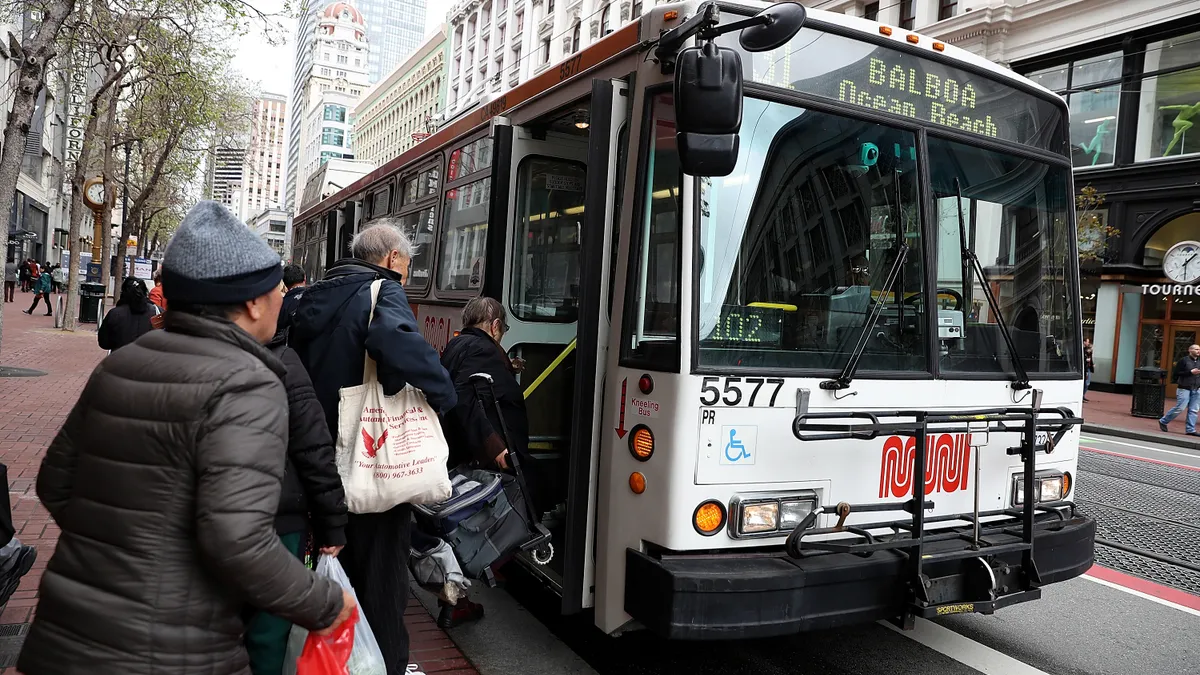Dive Brief:
- Optibus, which provides an artificial intelligence platform to create transit scheduling and route planning, has acquired Trillium, a provider of public transportation passenger information systems.
- Amos Haggiag, co-founder and CEO of Optibus, said the acquisition brings together the global reach of Optibus, based in Tel Aviv, Israel, with the North American client base of Trillium, which is headquartered in Portland, Oregon.
- The acquisition will "integrate both products into one holistic product," said Haggiag. That combination is anticipated to help transit agencies manage the pandemic's impact on bus and rail schedules, including labor shortages and ridership changes.
Dive Insight:
Many transit agencies are adjusting their bus and rail schedules as riders return, while also dealing with labor shortages that can cause short-term service cuts. Those changes affect riders who may be used to existing schedules. Optibus can help manage those changes, but "If the data doesn't flow to passengers, we can't really do that," Haggiag said.
Trillium's expertise is in developing software that uses General Transit Feed Specification (GTFS) data, a widely-used standard that can provide real-time information via apps such as Google Maps and Apple Maps, and through passenger information screens at stations and on trains and buses. "Trillium is really focused on what the passenger sees, making sure that the information is accurate and being updated, and it's [available] both offline and in real-time," Haggiag said.
According to the companies, passengers lacking information perceive unexpected wait times more burdensome than the time they spend on the bus or train.
More than 350 transit operators, as well as state and federal agencies in the U.S. and Canada, use Trillium software. "Open data systems are what drives public transport forward," Aaron Antrim, founder and CEO of Trillium, said in a statement.
Trillium also offers consulting services for strategic transit planning and for the integration of transit information technologies such as online trip planners, automatic vehicle location and automated stop annunciators. Haggiag said that helps fill a gap in their offerings.
Haggiag said they have already begun integrating the two companies and their products.












